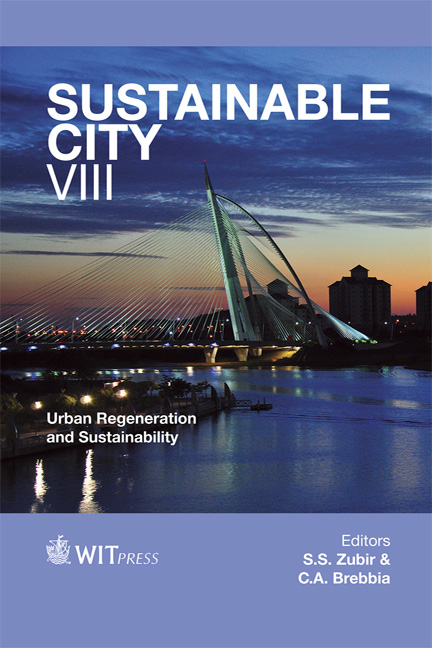Climate Change And Metabolic Dynamics In Latin American Major Cities
Price
Free (open access)
Transaction
Volume
179
Pages
15
Page Range
39 - 53
Published
2013
Size
96 kb
Paper DOI
10.2495/SC130041
Copyright
WIT Press
Author(s)
G. Delgado-Ramos
Abstract
Climate and environmental problems have become increasing challenges for cities, especially for those experiencing rapid urban expansion and population growth. The dimension and likely implications of these challenges can be better assessed if metabolic analyses of inflows, outflows and stocks of energy and materials are carried out in addition to conventional means of evaluation. Urban metabolic analyses have been carried out for different cities and for diverse metabolic aspects or flows, but it has been largely absent in Latin America. This paper opens with a general introduction to the current state of Latin American cities. It introduces the main aspects of the urban metabolism analytic approach and offers an initial comprehensive comparative estimate of inflows and outflows of some Latin American major cities: Mexico City, Sao Paulo, Rio de Janeiro, Buenos Aires, Quito and Bogota. A rough estimate of Mexico City’s stock of materials is then presented. The main characteristics of climate change plans are discussed in later pages with the purpose of offering a brief analysis of mitigation actions and existing metabolic dynamics. The paper concludes with some policy and governance considerations for the urban future and the forthcoming challenges and feasible opportunities at local or urban levels. Keywords: urban metabolism, climate change, Latin America, low carbon cities.
Keywords
Keywords: urban metabolism, climate change, Latin America, low carbon cities.





